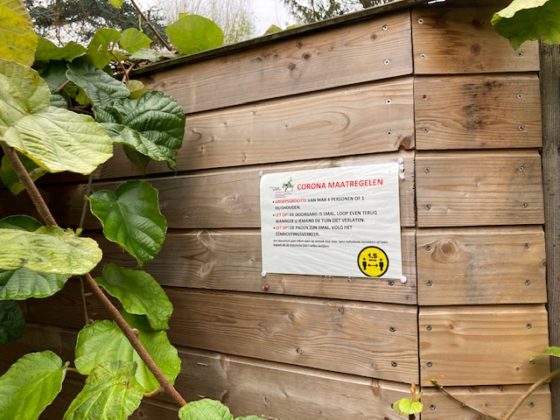Dutch lockdown may continue into February as disputes over vaccination strategy continue


It will be February at least, when some sections of the public have been vaccinated, before the Dutch lockdown can be eased, Jaap van Dissel, head of the Dutch public health institute RIVM, told the AD in an interview.
‘We are going to start vaccinating in January, then the second dose will follow in mid February,’ Van Dissel said. ‘So from that date, there could be some relaxation of the rules for the group that has been vaccinated.’
In addition, officials have agreed that should the number of positive tests start rising again, tougher measures will be brought in more quickly than this time round, Van Dissel said.
The current lockdown will run until January 19 at least, prime minister Mark Rutte said when it was announced in mid December. Rutte and health minister Hugo de Jonge will hold a press conference on January 12 to outline what the next stages will be.
Currently, around 9,500 new cases of coronavirus a day are being registered, although the figures may be distorted by the Christmas break.
Meanwhile, RIVM experts have told the Volkskrant and news website Nu.nl that the Netherlands is so late in starting vaccinating because officials had prepared a strategy based on the AstraZeneca vaccine.
Most EU countries have already kicked off their vaccination programmes but the Netherlands will not start until January 8, a situation which has been widely criticised.
The Pfizer vaccine, which is delivered in large batches and has to be kept extremely cold, was approved by the European Medicines Agency first, and that meant the strategy needed to be overhauled, Hans van Vliet and Jaap van Delden said.
The Dutch plan had been based on the current scheme for the annual flu vaccination, which is administered via nursing homes and family doctors. But the Pfizer vaccine is most suitable for large scale vaccination programmes, they said.
Puzzle
‘I understand the unease, but it is really is a very complicated puzzle,’ Van Delden told Nu.nl. ‘And for us it is not a competition to see who is the first to start in Europe.’
‘What really matters is how quickly you reach which level of coverage,’ said Van Vliet. ‘In six to nine months, all European countries will have vaccinated a large number of their populations.’
The government has decided to first focus on vaccinating care workers in nursing homes, followed by home residents. And health minister Hugo de Jonge said again on Wednesday that it will not be possible to start the vaccination programme before January 8.
Hospitals
However, two other prominent experts in the campaign to combat coronavirus have said hospitals should start vaccinating their staff as soon as possible.
Patient coordination head Ernst Kuipers and acute care chief Diederik Gommers say this is essential to keep hospitals functioning. On Wednesday it emerged that dozens of Dutch hospitals may no longer be able to offer critical but non-urgent care.
Kuipers expects hospitals to be treating some 3,000 coronavirus patients by early January, well above the total at the height of the first wave, he told Nieuwsuur on Wednesday evening.
Thank you for donating to DutchNews.nl.
We could not provide the Dutch News service, and keep it free of charge, without the generous support of our readers. Your donations allow us to report on issues you tell us matter, and provide you with a summary of the most important Dutch news each day.
Make a donation